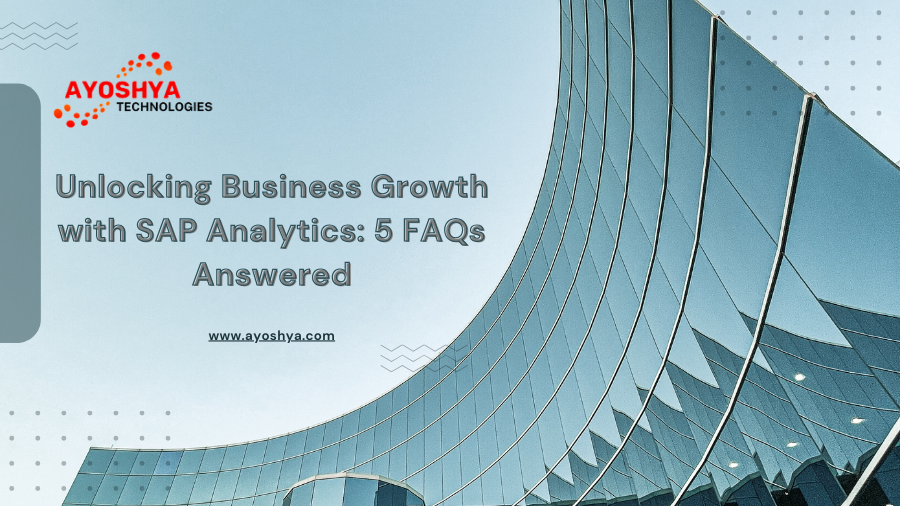SAP Analytics: Unlocking Data-Driven Insights for Business Success
Introduction to SAP Analytics
In today’s data-driven world, businesses are constantly seeking ways to harness the power of data for informed decision-making. SAP Analytics has emerged as a game-changer, empowering organizations to transform raw data into valuable insights. In this article, we’ll delve into the world of SAP Analytics, exploring what it is, why it matters, and how it can revolutionize your business.
Understanding SAP Analytics
What is SAP Analytics ?
It refers to a suite of business intelligence (BI) and analytics tools offered by SAP. These tools enable organizations to collect, analyze, and visualize data from various sources, providing actionable insights for better decision-making.
Significance
Why Analytics Matters ?
It holds significant importance for businesses due to the following reasons:
1. Data-Driven Decision-Making
It empowers businesses to make decisions based on data rather than intuition. This leads to more informed and strategic choices.
2. Improved Performance
By monitoring key performance indicators (KPIs) through Analytics, organizations can identify areas for improvement and optimize their operations.
3. Competitive Advantage
Businesses that leverage data analytics gain a competitive edge by responding quickly to market trends and customer preferences.
Key Components of SAP Analytics
Components of SAP Analytics
It encompasses a range of tools and solutions, including:
1. SAP BusinessObjects BI
A comprehensive BI platform that offers reporting, ad-hoc analysis, and data visualization capabilities.
2. SAP Analytics Cloud
A cloud-based platform that combines BI, planning, and predictive analytics for better collaboration and insights.
3. SAP Lumira
A self-service data visualization tool that allows users to create interactive dashboards and reports.
4. SAP Crystal Reports
A reporting tool for designing and delivering dynamic reports.
Benefits
Unlocking the Benefits
It delivers a range of benefits for organizations, including:
1. Data Accessibility
Easy access to data from multiple sources, ensuring a single source of truth for decision-makers.
2. Real-time Insights
Real-time data analysis provides timely insights, enabling proactive decision-making.
3. Scalability
It can scale to meet the evolving data needs of growing businesses.
Implementing Analytics
How to Implement SAP Analytics
Implementing Analytics involves several key steps:
1. Define Objectives
Clearly define the objectives and goals of your analytics initiative.
2. Data Integration
Integrate data from various sources, ensuring data quality and consistency.
3. Tool Selection
Choose the appropriate Analytics tools based on your specific requirements.
4. Training
Provide training to users to ensure they can effectively utilize the analytics tools.
Conclusion
It is a powerful solution for organizations seeking to unlock the full potential of their data. By understanding its significance, components, and benefits, businesses can make informed decisions, drive performance improvements, and gain a competitive advantage in today’s data-driven landscape.
FAQs
Q1: Is SAP Analytics suitable for small businesses?
A1: Yes, It offers solutions tailored to the needs of small and medium-sized enterprises (SMEs), making it accessible to businesses of all sizes.
Q2: How does Analytics ensure data security?
A2: It provides robust security measures, including data encryption, access controls, and audit trails, to safeguard sensitive information.
Q3: Can Analytics be integrated with existing business systems?
A3: Yes, It can be integrated with various business systems, including SAP ERP, CRM, and third-party applications.
Q4: What industries can benefit from SAP Analytics?
A4: Virtually any industry, including finance, healthcare, retail, and manufacturing, can benefit from Analytics to gain insights and improve decision-making.
Q5: Is Analytics Cloud suitable for remote teams?
A5: Yes, It Cloud’s cloud-based nature makes it ideal for remote teams, enabling collaboration and data-driven decision-making from anywhere.



